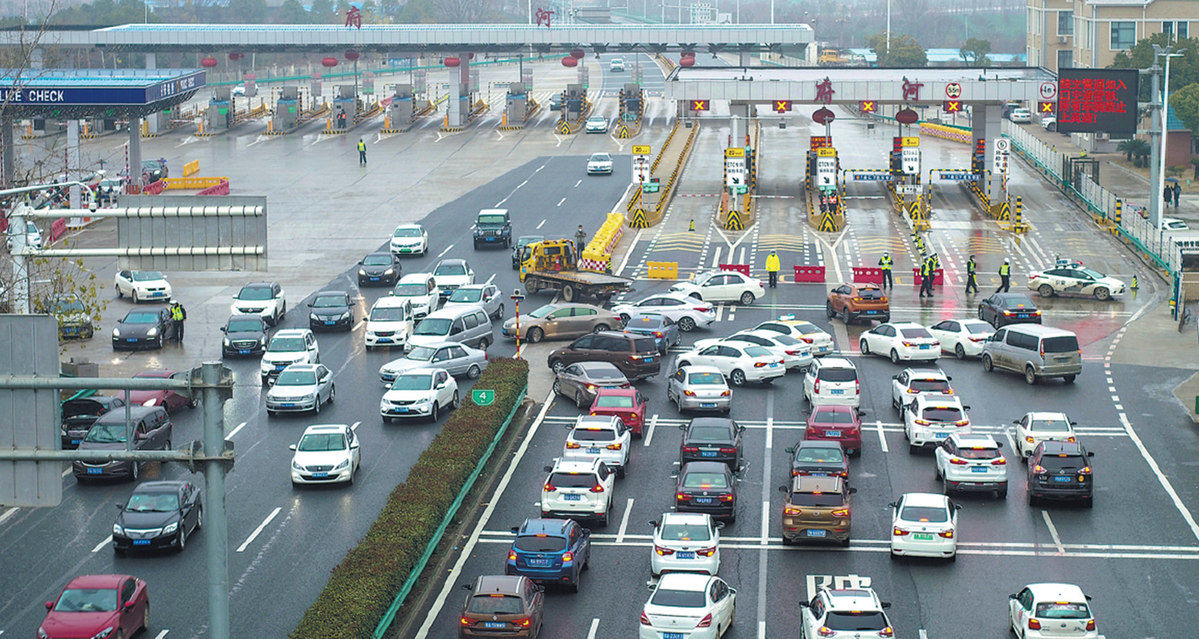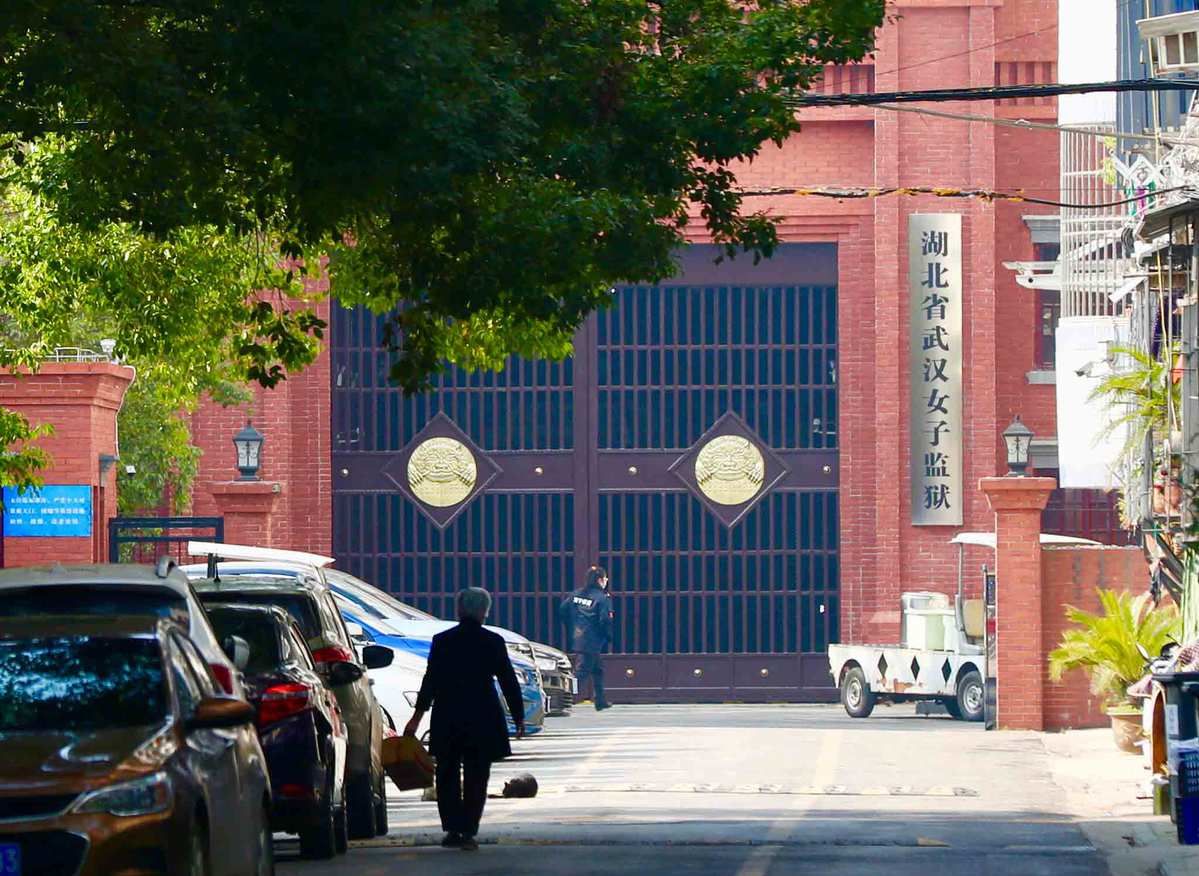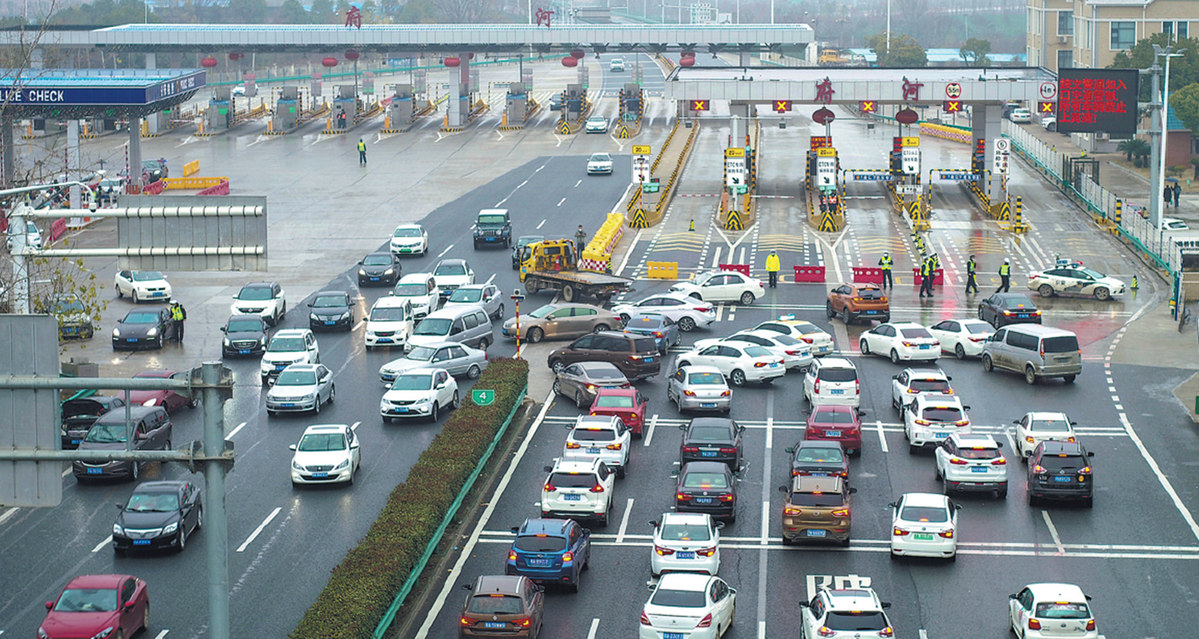
Nine officials from Hubei province, including the head of the provincial justice department, have been punished for allowing a released ex-prisoner who had shown symptoms of the novel coronavirus pneumonia to leave Wuhan and enter Beijing on Feb 22.
The woman, surnamed Huang, was later confirmed to have the infection after being driven to Beijing by family members. The case has received wide public attention with people questioning how she could manage to leave Wuhan after the city was locked down and then enter Beijing while showing symptoms of the virus.
A joint inspection team report released on Monday said dereliction of duty played a role and the root problem lay with prison management in Hubei province. The incident has endangered epidemic control work in Beijing, it said.
The case was brought to light after the Xinyijiayuan community in Beijing's Dongcheng district reported a confirmed case of infection on Feb 24. Its residents' committee issued a notice saying a female patient surnamed Huang came to Beijing from Wuhan on Feb 22, and she had had a fever in Wuhan since Feb 18.
The woman was quarantined the day after she arrived in the capital, and three of her relatives had also been under quarantine and medical observation since then, according to the notice.
After the case caused a huge public outcry, a joint inspection team led by the Ministry of Justice went to Wuhan on Feb 27. Disciplinary authorities in Hubei and the Beijing municipal government have launched investigations.
These investigations concluded that officials of the Hubei Provincial Justice Department had shown weak leadership and little awareness of their responsibilities, and they found that the management of Wuhan Women's Prison, where Huang served her sentence, was poor and its decisions conflicted with epidemic control work in the province and nationally.
The investigation also found that the Hubei Prison Administrative Bureau failed to implement the requirements of the province and the Ministry of Justice.
"The prison, which clearly knew that Huang had close contact with other confirmed infection cases and had shown symptoms of fever, failed to report to higher authorities and quarantine her for 14 days as required. Instead, the prison contacted her family members in Beijing and helped her to leave Wuhan in a police car," said the joint inspection team report.
Meanwhile, public security authorities in Wuhan's Dongxihu district were criticized for lapses in traffic control and the identification of people entering and leaving the district, according to the report.
Nine officials from Hubei, including Tan Xianzhen, head of the Hubei Provincial Justice Department, and Hao Aimin, head of the Hubei Prison Administrative Bureau, have been placed under further investigation.
Four authorities in Beijing, including the local community and the city's disease prevention and control center, were also held accountable. The head of the community's parking lot was dismissed, while others involved in the incident were given disciplinary punishments, such as warnings, in line with the severity of their mistakes, according to the investigation by the Beijing municipal government.

Case review
Huang, 61, was a cashier of the water conservation bureau in Xuan'en county, Hubei province. She was sentenced to 10 years in prison for graft on Feb 18, 2014.
After her sentence was reduced, she was due to be released from prison on Feb 17, and the prison contacted her family to arrange for her to return home.
Before Feb 17, Huang's brother in Enshi in Hubei and her daughter in Beijing both said they could not take Huang back home due to the traffic restrictions imposed during the epidemic.
After some prison officers had been confirmed to have the infection, Huang was quarantined in the prison on Feb 17.
The prison monitored her body temperature 13 times from Feb 17 to Feb 21, and found it was higher than 37.3 C on Feb 18 and Feb 19.During the period, Huang asked if she could go home, so the prison contacted her family again and her daughter agreed to help.
On Feb 19, Huang's family called the hotline of the disease prevention and control center in Beijing, and asked whether people could come to Beijing from Wuhan, and got the reply: "If you can leave Wuhan, Beijing will not impose any traffic restrictions."
Before leaving the prison, Huang was told the epidemic prevention rules and wrote a letter in which she promised to undergo 14 days of quarantine after returning home.
On Feb 22, the car Huang was traveling in entered Beijing, and the health situation and identities of the passengers and driver had to be checked by a police officer on the Daqing-Guangzhou Highway. The temperatures of the three people in the car were normal, but the officer did not confirm their identities, as required by epidemic control regulations, before letting them pass.
At around 2 am on Feb 22, Huang entered the Xinyijiayuan community without having her temperature checked or her identity registered.






